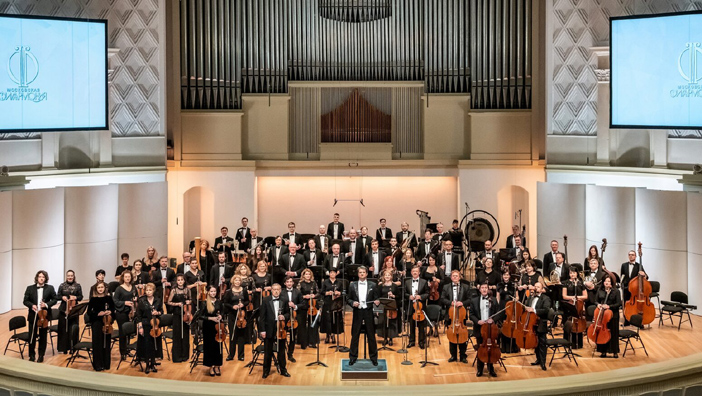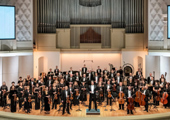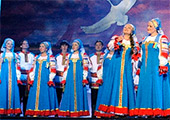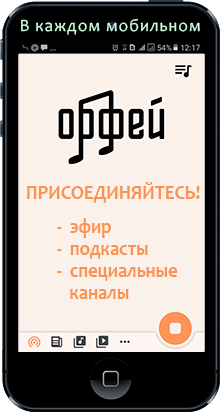Bach performed by the horn orchestra, meditative tranquility and confidence, Bulgarian mix - this is the report of the second day of the Festival.
“The Horn Orchestra of Russia” brings us back in time to the Russian Empire. Similarly to the organ, the musicians of the orchestra turn dry sounds of hunting horns into harmonious pieces of music.
The success of the ensemble lies in coherence and fantastic understanding by musicians of each other. The artists weave a magic, bewitching web from vibrating sounds, leading us through time tunnels: from the tunes of the Ancient East and Bach’s compositions, through Spanish rhythms to blues and stirring jazz.
The orchestra director Sergei POLYANICHKO: “We are preparing a new program, working on a new sound, new timbers - we are uniting and combining them in order to find new solutions. That is why today the horn instruments accompanied the Armenian duduk.”
Buryatia is the place of rituals which bring us very close to pristine nature. Victor Zhalsanov’s throat singing conveys meditative tranquility and confidence. Bound by four walls physically, the performer breaks all the restrictions and brings the listeners into different dimensions. Victor Zhalsanov is a phenomenon: his performing manners are close to those of people who lived in pre-historic times.
Victor ZHALSANOV: “You listened to traditional songs and tunes of Buryatia. It was throat singing, ritual songs, excerpts from epics. At the Festival one expects to get new impressions, meet new people. You get charged with new energy and new ideas - we learn everything by comparison and, among other things, discover something new about ourselves”.
The tunes and rhythms of Bulgarian folklore make it really juicy. “Bulgarka Junior Quartet” is a mix of cultures from different parts of Balkan Peninsula. The mystic charm of the eastern folklore weaves with the southern temperament. Playing with different rhythms and improvising, the musicians create the landscape of their traditional culture. The piquancy of the ensemble is in its costumes which absorb the colors of several peoples: Slavic, European and Turkish.
The Plenipotentiary Minister of the Embassy of Bulgaria Alexander KOVACHEV: “All modern music is based on folklore music. It should be loved, performed and distributed.”
Fanka KOYNAROVA: “Our repertoire is unique. We sing both Orthodox and Catholic music (Palestrina’s mass), soundtracks from films, old English songs - but mostly Bulgarian music, of course.”
Poland is the country where eastern and western cultures meet. The ensemble “Kozuch” erases all the boundaries by their incendiary dancing rhythms. The vocal and instruments of the ensemble create unique music - light and original. In their songs you hear broken eastern intonations, gypsy temperament and Polish touching sincerity. The storylines of the songs are clear without translation: they tell us about love, sufferings of the people and faith in the future. In each new couplet you hear improvisation and plexus of complex rhythms.
Maria STEPIEN: “The melodies and tunes which we perform reflect the real folk sound of Polish villages. Our musicians went to different villages to learn authentic performance. When processing the collected materials, we tried to change them minimally because for us these traditions are the most wonderful in the world”.
The virtuoso combination of ruans and the double-bass closes the second day of Euroradio Folk Festival. The slender guests from China, participants of “Shanghai Ruan Ensemble”, play their instruments really masterfully. The femininity of the ladies in long dresses whose thin fingers move so quickly that it almost impossible to trace them, is really fascinating.



















